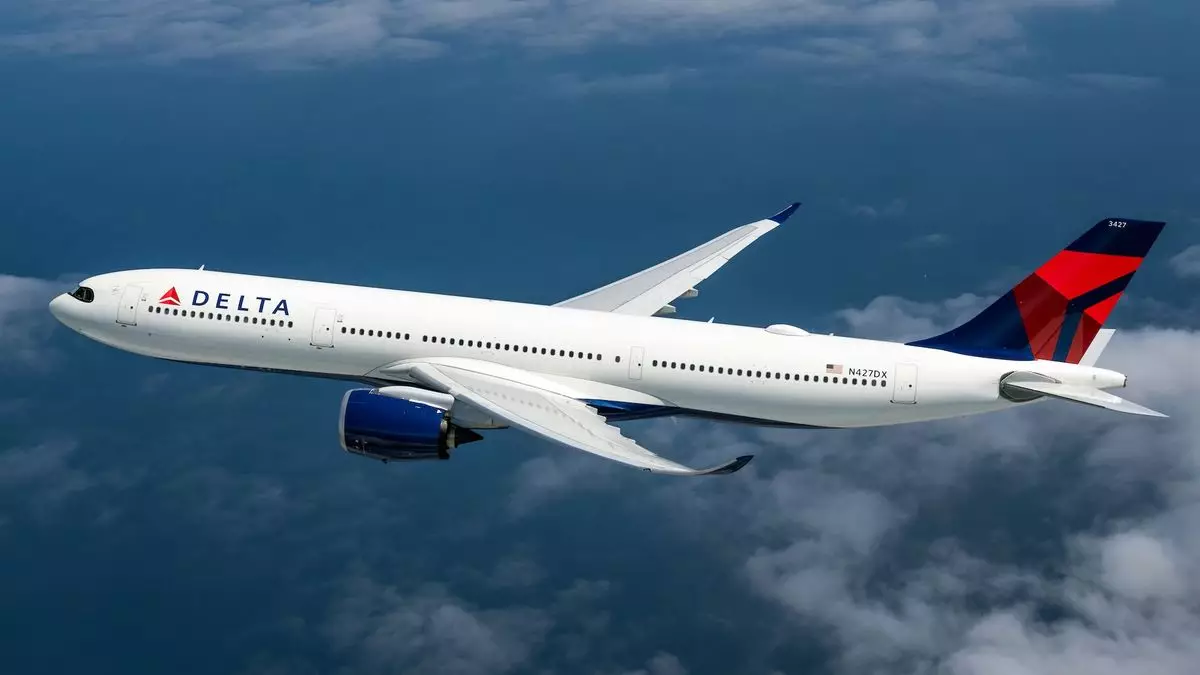In an era where technology propels industries toward more sophisticated operations, the airline sector stands at a critical crossroads. While many travelers appreciate the promise of tailored experiences, the introduction of AI-driven pricing models raises profound ethical and practical questions. Airlines like Delta are touting their advances, asserting that their use of artificial intelligence is solely aimed at optimizing revenue and enhancing efficiency. However, behind these public statements lies a complex web of strategic interests, potential compromises on customer trust, and unresolved concerns about fairness. As airlines proclaim their intentions are benign, it’s essential to scrutinize the underlying reality and ask whether these technological innovations serve consumers or merely corporate agendas.
The Promise of Precision: How AI Can Transform Pricing
Artificial intelligence holds tremendous potential to revolutionize airline pricing. Traditionally, airlines relied on static fare structures, with revenue management teams adjusting prices based on broad market trends and historical data. Now, with AI and real-time data analysis, airlines can swiftly adjust prices based on demand, flight demand fluctuations, competitor activity, and other dynamic factors. At face value, this promises a more efficient allocation of seats, potentially reducing wasted capacity and helping airlines stay competitive in a turbulent market. When deployed transparently, AI can even enhance the traveler experience by offering more personalized options, better aligning prices with actual willingness to pay, and avoiding the one-size-fits-all approach of the past.
The Controversy: Personalized Pricing or Hidden Discrimination?
Despite these benefits, the concern arises when airlines begin to move toward individualized pricing. Delta’s recent public stance vehemently denies using personalized fare discrimination. Their representative insists that their AI relies on aggregate data—such as overall demand and route popularity—rather than personal information, thereby protecting customer privacy. Yet, the mention of “individualized prices” in internal discussions and strategic plans raises alarms. Is this just marketing spin, or does real risk exist that certain travelers could face higher prices based on their browsing habits, purchase history, or perceived willingness to pay? Critics argue that such practices could cross ethical lines, disproportionately impacting vulnerable populations and exacerbating inequality, especially during economic downturns or times of financial hardship.
Transparency and Trust: The Need for Clear Boundaries
One of the core issues surrounding AI-based airline pricing is transparency. Airlines like Delta assert that their pricing algorithms are fair, based on data that benefits both the company and consumers. Still, the lack of clear disclosure about what specific data is used and how prices are determined fuels skepticism. Senators Warner, Blumenthal, and Gallego’s recent inquiries exemplify this frustration—they seek clarity on whether personal data influences fares and express concern about privacy breaches and exploitation. Delta’s claims of using aggregated, non-personal data clash with hints of individualized pricing strategies, creating a credibility gap. To build public trust, airlines must openly communicate their data practices, explain how AI influences fares, and establish safeguards against discriminatory pricing.
The Broader Ethical Debate: Do Airlines Prioritize Revenue Over Consumers?
Underlying the technological debate is a fundamental ethical question: are airlines exploiting AI for increased profits at the expense of consumer fairness? It’s undeniable that dynamic, individualized pricing could lead to higher fares for certain groups, especially those actively searching for flights or traveling during peak periods. While airlines argue that their algorithms are designed to optimize revenue organically, critics contend that this approach may amount to “price gouging” masked as innovation. American Airlines’ stance—limiting AI’s role to operational uses—reflects a desire to avoid public backlash and preserve customer goodwill. Meanwhile, Delta’s ambitions to expand AI-assisted fare adjustments suggest a vision where personalized pricing becomes normalized, raising fears of a future where prices are less predictable and more exploitative.
The Path Forward: Balancing Innovation and Ethics
The debate over AI’s role in airline pricing is not just about technology; it’s about aligning corporate practices with societal values of fairness, transparency, and privacy. Airlines must proactively establish clear policies delineating how AI is used, what data is collected, and how prices are set. Without such measures, trust in the industry risks erosion, pushing consumers toward less transparent, possibly predatory fare schemes elsewhere. Companies that embrace a transparent, ethical approach will not only foster loyalty but also set a standard for responsible innovation in the digital age. As AI continues to evolve, the real challenge for airlines is to harness its power without sacrificing the core principles that underpin fair market practices.


Leave a Reply